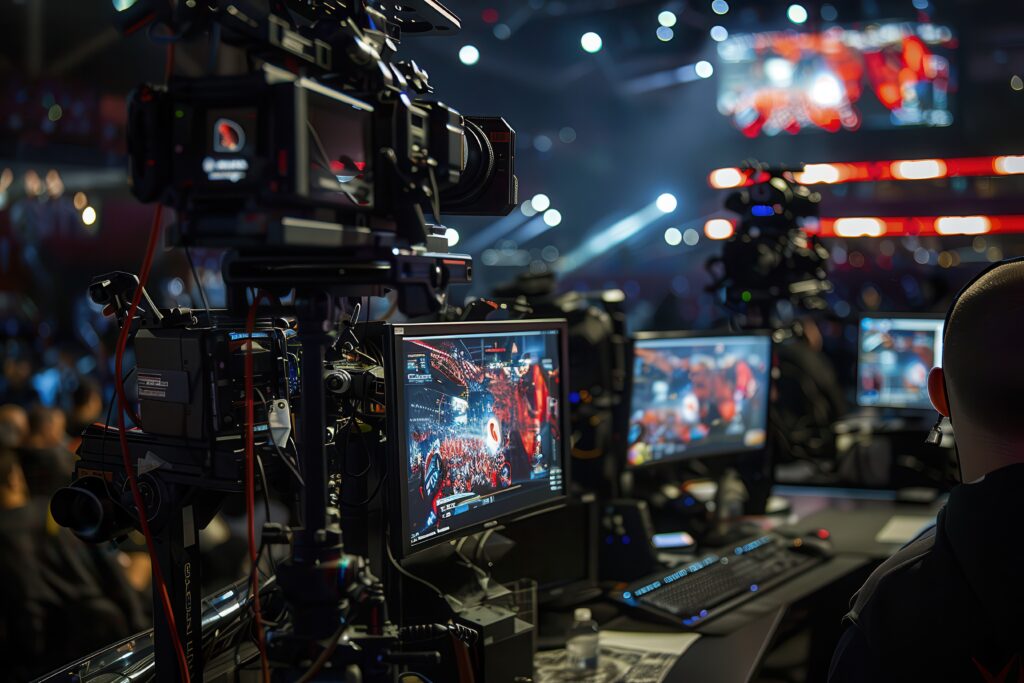For Esports, COVID-19 is far from ‘game over’
Back in January, we published an exploration into how the competitive gaming sector of media was growing, and why it was important to take the phenomenon seriously. In the past three months, the landscape has reshaped drastically, and the realities are even more interesting.
Under COVID-19, Esports has an exciting opportunity to expand its audience.
With social distancing and shelter-in-place orders currently making live sporting events near impossible — both for athletes as well as live audiences — online gaming is well-positioned, in the interim, to fill the programming gap.
Esports keeps quarantined viewers engaged
With 2.92 million viewers from 2019 waiting for the racing season to return, NASCAR partnered with FOX Sports and iRacing to produce an Esports racing event with NASCAR icons Jeff Gordon, Mike Joy and Larry McReynolds announcing the race as if it were a live human event. On March 22, over 903,000 viewers watched the race on FS1 making it the largest broadcasted event on FS1 since live sports were canceled. On the same day, Formula 1 created the Virtual Bahrain Grand Prix in place of its real event. The National Basketball Association and Major League Soccer also organized online games on various platforms — such as Facebook and YouTube — to engage and retain their audiences. Even ESPN is getting in on the action, announcing that they would air 12 hours of NBA 2K, Madden, and more.
This move is not just for professional teams. On March 17, the Indiana Soccer Association partnered with GYO Score, a competitive gaming data analytics platform, to create a FIFA Esports league “to enable Indiana Soccer’s youth soccer organizations to continue playing with their teammates…during Indiana Soccer’s Coronavirus outdoor soccer suspension,” GYO Score wrote in a blog post.
“Coronavirus safety and containment has caused most major sports organizations to shut down. Esports provides an opportunity for youth soccer players to compete, interact, and learn with each other from the safety of their own homes,” said Derek Pew, CEO of Harena Data, GYO Score’s parent company. “We are committed to helping young people use Esports as a way to learn and grow and, as an Indiana-based company, we felt we could do our part by offering our platform for free to youth soccer when players could not get on grass.”
Online gaming is uniquely suited to the COVID-19 landscape
Before organizations and cities began constructing arenas for the purpose of Esports tournaments, the gaming phenomenon thrived on the backs of independent streamers using platforms like Twitch and sites such as YouTube to gather a major following. In many ways, these roots mean that gaming celebrities are more prepared than any other type of entertainer to keep providing audiences — evangelists and neophytes alike — with a steady diet of new and exciting content.
For staple entertainment franchises who are willing to partner with more experienced Esports figures, online gaming offers a new way to not only engage with fans of a wide variety of genres and types of media, but to associate themselves with a meteoric trend that drew attention long before COVID-19 struck, and will certainly continue to enthrall viewers.
Don’t sleep on Esports under COVID-19
How long the current situation will last remains to be seen, but media organizations are already recognizing the need to be creative, flexible, and vigilant as they strive to keep their audiences engaged. Esports — with its democratic production models, vast and diverse offerings, and a passionate and vocal fanbase extremely tapped into social media — is an incredible opportunity for businesses looking to invest in the trend.


